The Latest from TechCrunch |  |
| StarringtheComputer.com: Why Wasn’t I Notified? Posted: 20 May 2009 08:50 AM PDT  So I'm looking at this and I find this. That's right: it's an entire website, frequently updated, dedicated to pictures of computers in movies in television. Did you know they used a Twentieth Anniversary Mac in Children of Men? No, you did not and neither did I. The guy who runs the site is always looking for contributions and even has a Help! page where he asks for assistance in identifying things like the freaking computer lab in Spies Like Us. I literally watched that movie last night and nothing in my genetic make-up compelled me to ask the world what computer lab they featured in a short sequence before introducing Dan Aykroyd's character (Doctor, doctor. doctor, doctor!) Clearly James from StarringtheComputer.com is made of different, nobler stuff. So I'm looking at this and I find this. That's right: it's an entire website, frequently updated, dedicated to pictures of computers in movies in television. Did you know they used a Twentieth Anniversary Mac in Children of Men? No, you did not and neither did I. The guy who runs the site is always looking for contributions and even has a Help! page where he asks for assistance in identifying things like the freaking computer lab in Spies Like Us. I literally watched that movie last night and nothing in my genetic make-up compelled me to ask the world what computer lab they featured in a short sequence before introducing Dan Aykroyd's character (Doctor, doctor. doctor, doctor!) Clearly James from StarringtheComputer.com is made of different, nobler stuff. |
| Craigslist Sues South Carolina Attorney General McMaster; Asks For Restraining Order Posted: 20 May 2009 07:42 AM PDT
Guess who we’re rooting for here? (Hint: We’ve encouraged the executive team at Craigslist to stand firm from the get-go). After all, our own poll shows that given the choice between keeping Craigslist or South Carolina, most of you would choose Craigslist. That is not too surprising. But even some people in South Carolina say Craigslist is more important than the state. And don’t forget the all-important “McMaster, stop abusing your power” Facebook group. Facing certain prosecution, Craigslist decided to strike first with its own lawsuit. In a blog post, amusingly tagged ‘harrassment’ (sic), that went up earlier this morning, Craigslist CEO Jim Buckmaster writes:
We say just go ahead and shut off South Carolina from Craigslist. Crunch Network: CrunchGear drool over the sexiest new gadgets and hardware. |
| Windows Media Center Gets Streaming Netflix Posted: 20 May 2009 04:42 AM PDT  Looks like Windows Media Center, that hub for video and audio which I've never used, is getting full Netflix streaming support. This is good news for those of you running HTPCs with Vista on them — no need for an extra layer or front-end, just open up WMC, enter your info and you're on your way. If you're not a member, hit up some free trial action and you could be watching a movie in about two minutes without leaving your chair. Looks like Windows Media Center, that hub for video and audio which I've never used, is getting full Netflix streaming support. This is good news for those of you running HTPCs with Vista on them — no need for an extra layer or front-end, just open up WMC, enter your info and you're on your way. If you're not a member, hit up some free trial action and you could be watching a movie in about two minutes without leaving your chair. |
| T-Mobile Lets Consumers Put Its Pricing To The Test, Courtesy Of BillShrink Posted: 20 May 2009 04:38 AM PDT
BillShrink launched in April 2008 as a way for people to compare the value they are getting with their current wireless provider against other national carriers. It has since raised an additional $8 million on top of a $1 million round it secured back in 2007 and expanded its technology to other products and services, like helping you find the cheapest gas in your neighborhood or the ideal credit card based on your profile. People can now visit the T-Mobile website or one of its retail stores for a so-called “Mobile Makeover”: free, unbiased and personalized savings recommendations for wireless plans, powered by BillShrink. That’s a big boost for the fledgling company, especially considering the first television spot featuring Zeta-Jones will air tonight during the American Idol season finale on FOX (that’s a lot of eyeballs). It’s also a bit of a risk for T-Mobile, although they seem pretty confident of the outcome of the comparison engine:
Billshrink is headed by CEO Peter Pham, a former Photobucket executive who joined the company in February last year.
(Via Trading Markets) Crunch Network: CrunchBoard because it’s time for you to find a new Job2.0 |
| Open Source Developer Intends To Block Belgian Government From Using His Technology Over Tax Dispute Posted: 20 May 2009 03:59 AM PDT
iText is distributed under the Mozilla Public License with the LGPL as an alternative license, but it is also available through a commercial license, distributed by iText Software. Pretty soon, these licenses will be updated, and Lowagie is now pondering about adding an additional restriction of usage for the product referred to as ‘The Belgian Restriction’ (Dutch): no official government-related institution in Belgium will be allowed to use iText in any of its applications and systems for any version after iText 2.2.0. The restriction would include any third-party application that makes use of iText too, which means there are a lot of government bodies who would be forced to rewrite or downright replace essential systems to keep on functioning properly (from a technical standpoint, that is). On the other hand, it could also lead to iText being barred from future Linux distributions because of the built-in restriction. The reason for all this ruckus? Apparently, Lowagie has been forced to cough up nearly 10,000 € over the past few years simply because he’s running been Google AdSense ads on his personal website, which the government erroneously classified as income from corporate activities. He’s been fighting over this for quite a while, but the situation hasn’t been resolved yet so this is another way for him to draw attention to the whole thing. Lowagie points out that iText will still be available under MPL and claims he would be willing to lift the restriction if the dispute were resolved in due time. He added that he’s not only doing this for personal attention but also to poke third-party developers who (ab)use the iText license in dubious ways. Some commentators are pointing out that this restriction threat sends out the wrong message about the concept of open source, and that this could actually lead to less trust in F/OSS technology from both governments and corporations. I can’t say I disagree with that, but it proves how desperately Lowagie is trying to reverse the decision made by the local IRS, and I happen to have a thing for people who stand up for something. What do you think? Crunch Network: CrunchBase the free database of technology companies, people, and investors |
| Decisions For Heroes Like A BaseCamp For Mountain Rescuers Posted: 20 May 2009 03:10 AM PDT
Crunch Network: MobileCrunch Mobile Gadgets and Applications, Delivered Daily. |
| Amazon Updates The Kindle App To Be More iPhone-ified Posted: 20 May 2009 02:38 AM PDT
The new 1.1 version of the Kindle app [iTunes link] allows users to read in either portrait or landscape mode. You can also now switch between different background color/text color combinations to make reading easier on the eyes. And turning pages is now easier with tap support and you can now use the multi-touch pinch to zoom in on images. Basically, Amazon has iPhone-ified the Kindle experience. My favorite thing about the landscape/portrait mode is that while you rotate your iPhone to switch between the two, there’s a lock icon in the lower right hand corner to easily disable this rotation. I wish every app on the iPhone had that, as I cannot stand when things rotate even though I didn’t want them to. The background options of black or sepia along with the standard white is also a nice touch, as it can be hard to read on the white when the screen is fully illuminated. A couple of weeks ago, Amazon revamped its Kindle book site to be better suited to browse and shop from the iPhone. Now, it seems that the app is already benefiting from Amazon’s recent purchase of the company behind the popular Stanza book-reader app. With this latest update, the Kindle app now shares many of the same features.
Crunch Network: CrunchBoard because it’s time for you to find a new Job2.0 |
| Former MySpace Execs Get Funding For New Venture; Some Details Leak Posted: 20 May 2009 12:32 AM PDT
The company, whatever it will be called, was founded by Amit Kapur (MySpace COO), Steve Pearman (MySpace SVP Product Strategy) and Jim Benedetto (MySpace VP Technology). The company is now backed by August Capital and Redpoint Ventures, who jointly funded a roughly $10 million venture round. David Hornik from August and Geoff Yang from Redpoint have joined the board of directors. What do we know so far about the company? Not a whole lot except that Redpoint and August are rumored to be “very excited” about it. The company is supposedly targeting the message board/Internet forum space with technology that aggregates content and serves advertising against it. Real time search (bingo! fundable!) may be part of the business plan as well. Whatever this thing is called, and whatever it does, I know one thing - I like the team. These were three of the most respected and creative execs at MySpace. Keep an eye on them. Crunch Network: CrunchBase the free database of technology companies, people, and investors |
| The Freemium Model And A Desktop App Get The Thumbs Up With Pandora One Posted: 19 May 2009 11:58 PM PDT
The most obvious feature of Pandora One is the removal of ads from the site (this was the only feature of the previous subscription version) — that means not only the ads on the page but the in-stream audio ads as well. And there are five other keys to Pandora One that you get with your $36-a-year subscription price: The biggest one is access to a very solid Pandora desktop app. The others include high quality streaming, a personalized look, a mini player and extended player timeouts. All of those should be fairly straightforward, but just to hit on some of the key points:
The ad model is of course what keeps Pandora alive. And it’s actually doing very well. Pandora is coming off of its biggest ad sales quarter in the history of the company, Conrad tells me. Ad sales were up 80% over the year ago period and the company is tracking to make $40 million in revenue for the year — which would double last year’s total. More importantly, it means that 2010 could be the first profitable year for Pandora, according to Conrad. Of course, that doesn’t matter if the lingering online streaming radio royalty issue isn’t resolved, but that could be coming shortly as well. “We’re optimistic about the prospects of a resolution in relatively short order,” Conrad tells me. So things are looking up and up for Pandora, but at the same time, the company, which has always focused on being a sustainable business (unlike some of the other music startups out there), feels the time is right to branch out a bit. It’s affiliate sales model (which lets users of Pandora buy music through iTunes or Amazon), is already proving to be a nice little secondary model — one that is growing thanks to the iPhone. But it’s the freemium model that could really be a more significant source of money. The reason is that while the company knows that it will always be just a very small percentage of its user base that will pay for the service, that small percentage is actually a lot of people given Pandora current usage numbers. Right now, Pandora is seeing 10 million monthly users on its website, and it has 5 million members using the iPhone app and another million now using the BlackBerry app (it’s the leading music app on both platforms). If just 3 to 5 percent of its audience signs up for Pandora One, that’s not an unsubstantial amount of money for the company. Other services in the space have played around with this model as well. Notably, Last.fm has a monthly subscription option — but it also requires that all users not in the U.S., UK or Germany pay a fee to use their service. Of course, Pandora is currently only available to users in the U.S., so it doesn’t have to worry about some of the tricky advertising situations around the world. In terms of how Pandora One will affect the company’s popular iPhone app, premium subscribers will also have ads turned off in the app as well. Unfortunately, the 192Kps streaming quality is limited to the web version and the desktop app only right now, though Conrad says it’ll look into possibly giving premium users on the iPhone the ability to stream high quality over WiFi. Likewise with the BlackBerry app — and Pandora will have an app ready to go for the launch of the Palm Pre on June 6, Conrad says. It’s worth noting the that desktop app is a feature that was added at the last second when Pandora’s lawyers informed them they had to disable another planned feature from Pandora One: The ability to see the next artist set to play if you skip a track. Internet radio’s often odd rules prohibit you knowing what song is going to play next, but what’s amusing here is that Pandora was only going to show the next artist — not the actual song — but apparently that’s a no-no as well. So instead we get something much cooler: The desktop app. Conrad and his team were planning to launch the desktop app in a few weeks anyway, but hunkered down the past week to get it done in time for this launch. I’m playing with it right now — it will definitely rival iTunes as the source of music constantly playing on my computer. And unlike quite a few other AIR apps, Conrad assures me that it has none of the memory leak and CPU-usage problems. Sadly, you will have to sign up for Pandora One to use the app. And while the company isn’t expecting too much, that may just be the leading perk that gets people to sign up. For roughly 95-97% of Pandora users out there, this news about Pandora One may not ultimately mean too much. You’re likely to continue to use the service exactly as you have been — for free — and Pandora’s fine with that given how well ad sales are going. But for the other 3-5%, Pandora One will undoubtedly be a must-buy as $3 a month is nothing to wipe out ads, get higher quality and a nice desktop app, if nothing else. And yes, if you happened to be one of the people that actually had the subscription version of Pandora before, you will be upgraded to Pandora One with your membership. Crunch Network: CrunchBoard because it’s time for you to find a new Job2.0 |
| Facebook Verified Apps Rolling Out Today (Update: Now Live) Posted: 19 May 2009 11:32 PM PDT
Here are some of the other details we’ve gathered:
The purpose of the Verified Apps program is to help Facebook highlight the cream of the crop of Facebook Platform, which has previously had issues separating the good applications from the bad. Developers pay a $375 annual fee to participate, and in return they’re given a badge meant to inspire user trust, as well as priority placement in the application directory. Now that the directory is live, it will be up to Facebook to convince users why these approved applications are better than others. That may not be as easy as it sounds (especially if some of their favorite apps aren’t granted approval), so expect a heavy dose of “educational” advertising and promotion as Facebook brings everyone up to speed. Verified Apps will play a key role going forward for Facebook Platform, especially once Facebook’s payment system goes live and users have to decide where they should be comfortable spending their money.
Thanks to “Kilgore Trout” for the tip. Crunch Network: CrunchBoard because it’s time for you to find a new Job2.0 |
| BitAuto: A Chinese Canary in an Online Ad Coal Mine Posted: 19 May 2009 10:16 PM PDT
But as a sneak preview, I had a meeting yesterday with William Bin Li, the 35-year-old founder of BitAuto. Like most local entrepreneurs he’s squarely focused on China’s massive domestic market, and local guys like Li will always have a leg up on returning Westerners zealously eying that same prize. BitAuto is like Cars.com, AutoTrader and Consumer Reports rolled into one and sitting smack dab in the massively growing Chinese auto industry. It operates a Web site that sells new cars, one that sells used cars, and is also powers the auto verticals of major Chinese portals like Tencent, Sina, and even Yahoo. It also produces a one-hour-per-day car-themed radio show that's syndicated on 200 stations, a car review magazine, and a one-hour-per-week car-themed TV show that's syndicated on 20 stations. And if that weren't enough, a sister company places $400 million RMB (roughly $56 million) in car-related advertising around the Web every year. I asked Li why not focus on just one of those major categories and he replied, "This is China." By that he explained, through a translator, that in China car adoption, Internet adoption, online ad markets and car-related media were all growing from a standing start at the same time. So there was no dominant entrenched leader in any of those categories. Why not take on all of them? Li is plenty ambitious. He started his first business doing Web hosting in 1996 while a student at Beijing University, studying computer engineering. At 20, he was part of the original team at DangDang, known as the Amazon.com of China. In 2000, he founded BitAuto. He got a $1.5 million investment from a state-run car dealer and started to build out his team. Then the Internet bubble burst. (Yep, the whipsaw was the same over here.) Li’s backers didn't want him to spend the money, but trouble was, he'd burned through $600 million of it. So he took out a personal loan and gave the whole amount back. (And took back 100% ownership of the company in the process.) Li and six other guys worked without pay out of Li's apartment for the next four years or so. To pay the bills, they came up with an OpenTable-like inventory software program for car dealers, followed by an ad serving product for dealers advertising online. That got them about $500,000 in revenues through the end of 2004— enough to stay afloat. By then the Chinese car market was surging, the Internet was hot again, and the market was finally ready for what Li had set out to build back in 2000. Fast-forward to today: Li has raised about $30 million from Lenovo's venture arm, Nippon's venture arm, and DCM's China office. He admits he was way too early back in 2000. Not only was the consumer Internet more nascent, but there were only half a million cars in Beijing and only 5 million in all of China. Today, there are 3.6 million cars in Beijing and 40 million in all of China, and the market is still growing at a rate of between 20%-30% per year. And while people are fond of saying online advertising isn't a real business yet in China, automobiles are the number one category of spending, to the tune of 1.3 billion RMB a year. For such a young online ad market, that number holds up surprisingly well next to 5 billion RMB spent on newspaper car ads and 4 billion RMB for television. I asked Li why and he said that car dealers have told him that their customer surveys have shown that more customers learn about different car brands online than on any other single medium. In addition, the demographics of people in the market for new cars dovetails nicely with the people who are using the Web already in China. There are clearly some risks to Li's business. He's trying to do a lot at once, and many Web companies succeed when they focus. (Ahem, Google.) He's managing a whopping 1,200 employees throughout China. Much of his time is spent building out a local sales force for the huge country’s fragmented market of auto dealers. That's about double the employees of Facebook, for some perspective. Needless to say, the company isn't profitable yet, but so far 60% of its revenues come from the seven largest cities, so a far-flung sales force in second and third tier cities could yield substantial growth over time. And because BitAuto gets a lot of traffic by powering the auto sections of major portals, its own brand isn't as prominent in China as Li would like. But Li has conviction. Like a lot of Chinese entrepreneurs, when his company stumbled he didn’t just scrap it and move on to the next idea. This was it, and he'd wait out the market. Since it’s in the leading vertical, BitAuto will be an interesting company to watch to see how big the online advertising market can get in China—and how long it'll take to develop. That's a topic of a lot of debate right now with a lot of Web names not even trying to develop an ad-based business model. It's also worth noting the board has eliminated one of the biggest risks: Li's penchant for climbing dangerous icy mountains. A board member went with him on one of his frequent trips and the kibosh was quickly put on the hobby. Li misses it, but figures he'll build the business for the next 15 years then climb again when he's fifty. I wonder if it’ll seem boring compared to building an Internet company in China. Crunch Network: CrunchBoard because it’s time for you to find a new Job2.0 |
| Footbo Raises $1 Million For Social Network Focused On The World’s Most Popular Sport Posted: 19 May 2009 08:20 PM PDT As the world’s most popular sport, soccer (or football as it is called in most of the world) has no shortage of devout fans, and with the World Cup coming up in just over a year, that popularity is set to skyrocket once again. So it’s no surprise that social networks dedicated to the sport have emerged that are looking to capitalize on this massive market. One of these is Footbo, a soccer-centric social network that has just closed a $1 million funding round from Pitango Venture Capital. Since launching last June, the site has built up an international audience of 240,000 across English, Spanish, and German-speaking countries. The site has also recently implemented Facebook Connect, and is working to further increase exposure through a number of widgets. While Footbo is touted as primarily a social network, it offers a handful of major interlocking components. Its social network includes standard functionality like allowing users to connect with friends, participate in groups, and message each other. There’s also a collection of data and statstics of professional teams from 70 international leagues, including scores, standings, and fixtures (schedules). The site also has over 50,000 team and player profiles. Users can interact with this data through prediction games (which have also been integrated into Virgin Media), customized news feeds, and subjective grading of how their favorite teams fare during a game, which they can then compare to other users. Users can also add their own content, including blogs and wiki pages revolving around players and teams. Members can also use the Footbo platform to create their own teams and leagues for recreational play. Footbo competes with a number of other soccer-centric sites, including ESPN’s Soccernet.
Crunch Network: CrunchBoard because it’s time for you to find a new Job2.0 |
| Tipjoy Makes A Useful Premium Twitter App To Test Its Payments API Posted: 19 May 2009 07:47 PM PDT
Tata-tweet allows you to feed multiple Twitter accounts into one feed. When you do this, it will auto-append the name of the person tweeting to the end of the message. That means no more logging out from your account to send from the group account — and no more having to copy and paste the tweet if you also want to send it from your own. You can see this in action on the Y Combinator’s founders group account. But there’s a slight catch: Using this app will cost you $0.99 a month. Yes, it’s a premium Twitter app. While those are a dime a dozen on platforms like the iPhone, they’re not so common on the web. And a monthly payment one is almost unheard of. But Tata-tweet is able to do it thanks to Tipjoy’s Twitter Payments API. This service extends Tipjoy’s social micropayment structure to the red-hot Twitter platform. And Tipjoy created this app to show exactly how it will work. Pipping your accounts into Tata-tweet is easy, but you will have to have a group account set up that all of these tweets will be sent from. Once you have that, you click on the sign-up button and your TipJoy account is billed. It doesn’t require a credit card because TipJoy assumes that you’re good for the money. A word of caution: TipJoy will tweet out that you owe $5.94 (you have to sign up for 6 months at a time) for creating the new group account. Tata-tweet is entirely open source, and you can grab the code at github. Tipjoy is running a contest through June 1 for the best apps created using this new Twitter Payments API — and according to TipJoy co-founder Ivan Kirigin, there are already plenty of good ones since Twitter is featuring it in the gadget box on the main Twitter homepage. Kirigin bets that a lot of premium Twitter services will start popping up soon to make money on the popular platform. Yes, that will probably happen before Twitter actually makes any money. Crunch Network: CrunchBase the free database of technology companies, people, and investors |
| South Carolina Holds Its Own Poll, Still Loses Posted: 19 May 2009 06:58 PM PDT
The numbers are obviously not statistically relevant since TechCrunch readers, a tech savvy lot, are going to be more likely to side with Craigslist. But South Carolinians (or whatever it’s supposed to be) apparently aren’t too thrilled with their state, either. The Palmetto Scoop, a popular conservative blog in South Carolina, held their own poll today and asked “Which is more important, 2,500 TechCrunch readers (the total number that had voted as of this post) or enforcing the law?” As of right now, 60% of the 124 respondents say, well, TechCrunch is more important than enforcing the law (which isn’t really what the Craigslist issue is about anyway). Your conservative voters have spoken, Mr Attorney General McMaster. We’ll draw up the secession paperwork for your signature. Update: Just because it’s awesome: Crunch Network: CrunchBase the free database of technology companies, people, and investors |
| Posted: 19 May 2009 05:58 PM PDT  Oh, Internet! This here is a silly video showing a future version of the Amazon Kindle, the Kindle 9 XXXD. Why, it's so big it can't possibly be practical to use! And, for the record, I could have sworn I saw this same concept—examine what a current gadget will look like in the future, to humorous results—on the Onion last year. Still, cute. Oh, Internet! This here is a silly video showing a future version of the Amazon Kindle, the Kindle 9 XXXD. Why, it's so big it can't possibly be practical to use! And, for the record, I could have sworn I saw this same concept—examine what a current gadget will look like in the future, to humorous results—on the Onion last year. Still, cute. |
| Tailrank Finally Slides Into The Deadpool, But The Platform Behind It Lives On Posted: 19 May 2009 05:50 PM PDT In news that should come as a surprise to no one, troubled news aggregation site Tailrank is officially headed to the Deadpool, as its parent company looks to sell off its assets. The company behind the site has decided to cut its losses and to concentrate its efforts on Spinn3r, the platform used to power Tailrank that allows researchers and developers to tap into the service’s volumes of blog data. In the wake of Tailrank’s demise, Spinn3r is announcing a major upgrade today, which includes a new backend, architecture, and revamped user interface. Tailrank launched in late 2005 as an automated news aggregator looking to compete with the likes of Techmeme and a handful of competitors. By mid-2007 it became clear that few people were actually using the site, after it took weeks before anyone noticed that its technology section had gone blank (which prompted us to question if the site should have been placed in the Deadpool). A product upgrade a few months later didn’t do much to help the site gain traction, and visitors to the site now see an error message. But while the consumer facing portion of Tailrank is gone, its backend lives on. The company spun off the technology platform called Spinn3r in early 2007, allowing developers and researchers to tap into its blog indexing and ranking data. Since then it has been used by a number of major universities and startups as a way to access vast amounts of data without having to crawl the web themselves. Today’s release of Spinn3r 3.0 introduces a new admin console, which is meant to make it easier for users to sift through Spinn3r data (the company reports that while it has previously provided a powerful API, some customers had trouble using it, which the new panel should help with). Other new features include access to comments through an API, improved tracking for new content across blogs (even those that don’t support pings), a much larger archive of past posts, and improved performance. Spinn3r has also detailed some of the applications researchers are building on the platform, including a Swine Flu Tracker built by the University of North Texas. Crunch Network: CrunchBase the free database of technology companies, people, and investors |
| Tesla Worth More Than Half A Billion Dollars After Daimler Investment Posted: 19 May 2009 05:22 PM PDT
That’s not too shabby for a company that was down to just $9 million in cash late last year. The company has also recently said that 1,000 preorders for the new Model S sedan have been received. Over 500 were reserved in the first week after it was unveiled. Crunch Network: CrunchGear drool over the sexiest new gadgets and hardware. |
| Yahoo Search, As We Know It, Is Over Posted: 19 May 2009 04:03 PM PDT
That’s not necessarily to say that Yahoo isn’t working on anything interesting in search — it is. BOSS, its open search strategy and Search Monkey, its open search application platform, are interesting, but they’re also old. In fact, part of today was used to highlight Search Monkey’s one year anniversary. One year may not seem like a long time, but in a constantly innovating web, especially in the search space, it is. And there’s a much larger problem with those two offerings: They’re not particularly interesting to end users on a large scale. I bring that up because Yahoo is still losing search share. As it slips closer to 20 percent in the U.S., Google keeps gaining share, up to 64.2% in April, according to comScore. I don’t want to say that there is no way for Yahoo to reverse that trend, but with the things it’s currently doing, I see no way it can. Even if (and probably “when”) it does merge its search business with Microsoft’s search business, the two combined will only have about 28% of the search market in the U.S. — well below half of Google’s share. So what the hell is Yahoo doing? Well I can tell you what they’re not doing. They’re not focusing on launching sexy-looking new ways to interpret search data on the front end, like Google is. Yahoo is using its BOSS and Search Monkey products to gather up new data for better results, but none of it is likely as interesting as Google say, trying to index the world’s books. Here’s what else Yahoo is not doing: Focusing on real-time search. I asked a question about their thoughts on that sexy trend right now, and the various execs at the event all downplayed its importance — calling it a “buzzword.” On some levels they’re right, many real-time search queries like certain results on Twitter search are basically meaningless. But there is an underlying power to real-time search that is undeniable, and that users want. That’s why we’re seeing so many companies working on it right now. Google recognizes the trend, and is starting to talk about it very seriously. And Twitter is going the other way to add link crawling to its results, to make its real-time search offering much more robust. Prabhakar Raghavan, the head of Yahoo! Labs and Yahoo! Search Strategy did say that Yahoo would like to “blend the best of both” meaning mix fresh content with relevant content, but offered no firm plans as to what the company was working on to do that, beyond what it’s already doing — which isn’t enough. Here’s what Yahoo is doing with its search product based on what they were saying at today’s event: They’re moving from returning links to returning objects based on user intent. But come on, even after we parse the buzzwords (interesting, when you consider that Yahoo called real-time search a buzzword), there’s still not much there. This is the same thing that basically all the search engines have been saying for years now. The web is about more than just links — shocking.
You can call it whatever you want: Objects, rich results, pretty picture things — this alone is not a way Yahoo is going to reverse its search share trend. At some point Google will stop taking search share from its competitors (at the very least when it reaches 100%), but Google is synonymous with web search right now, and that is not going to change anytime soon. Especially when Google’s innovations in the space trump Yahoo’s. Yahoo search may have a window with its mobile offerings — and it played that up today by saying that while about 1 billion people in the world use PCs, 4 billion people use cellphones. But that’s almost more contingent on worldwide mobile carrier deals that any kind of real innovation. Can Yahoo wheel and deal and own that space? We’ll see, but again Google is doing some kick-ass things in mobile search with its voice search technology. Yahoo can downplay something like real-time search, but at least that’s something different than being the “other Google.” Sadly, with its search product, that’s what Yahoo has become. Crunch Network: MobileCrunch Mobile Gadgets and Applications, Delivered Daily. |
| Google Releases Tweaked Version of Reader Posted: 19 May 2009 04:00 PM PDT  Google has released a new version of Reader that’s been tweaked a bit. Google has added a new set of tabs in the trends page called “Friends Trends,” where you can see which friends share the most content and whose shared items you read. Another change relates to the comments feature, which is now available to Reader’s non-English users. Google says that sources of items in Reader are now visible in the comment view and makes it easier to mark items as saved. Google says that it has focused this new version on improving the user experience by recently revamping the new user page that tries to help beginners to understand how Reader works. In addition to a welcome video and a tutorial, Reader points out the kinds of feeds that you can subscribe to. Google now lets you import feeds from your iGoogle page, making it easier for those who have existing iGoogle accounts to seamlessly integrate feeds between the two products.  Reader’s mobile interface also got a little makeover in the new version. You can now post notes from the mobile version and Google has fixed a bug that plagues non-Android phones causing items not to be marked as read correctly. We recently wrote about Google Reader’s limitations as a social platform. Google recently launched several social features, including the ability to share items with friends of friends, and this new version also adds extra social functionality but the application still has awhile to go before it masters the social world. Crunch Network: MobileCrunch Mobile Gadgets and Applications, Delivered Daily. |
| The Record Industry’s Failed TotalMusic Project Finds A New Home At Project Playlist Posted: 19 May 2009 02:45 PM PDT
Playlist will apparently be leveraging some of the tools and API capabilities developed by TotalMusic during its Facebook courtship, but it’s still unclear how exactly these will be used. Much of TotalMusic’s appeal and innovation lay in its unique free song licensing scheme, which was going to offer Facebook free music streaming in exchange for user data and ad revenue. Playlist isn’t going to be able to get the same kind of licensing deals, which means this deal is primarily for TotalMusic’s technology (which has yet to be seen publicly) and personnel. And in more somber news, both companies will be losing “overlapping” employees in the process, with around a dozen people affected. That said, the deal may indicate that things are looking up for Project Playlist’s legal battles - UMG was one of the intitial stakeholders in TotalMusic, and if they were somehow involved with the acquisition it may indicate that the record label is looking to play ball with Playlist. Warner would remain the lone holdout remaining on the lawsuit if that was the case (EMI, which was previously involved in the suit, decided to license its catalog to Playlist in March). Playlist has also announced that it has closed publishing deals with Sony/ATV and EMI. The company had previously had streaming rights to these catalogs, and will now be able to sell these songs as well.
Crunch Network: CrunchBoard because it’s time for you to find a new Job2.0 |
| European Social Network Netlog To Use Mollom’s Spam Filtering Tool Posted: 19 May 2009 02:35 PM PDT
Spam filtering tool Mollom, a competitor to Automattic’s Akismet, has struck a deal to filter messages and comments for Netlog, one of Europe’s fastest growing social networks. Mollom will be filtering more than 4 million messages in over 25 languages for Netlog, which has 40 million worldwide users. Mollom says that it has set up dedicated servers within Netlog's data center to enable real-time, 24/7 monitoring of messages and comments. Mollom’s technology automatically blocks comment spam, contact form spam and fake user accounts using a filtering technique based on the combination of content analysis and CAPTCHA challenges. When new content is analyzed by Mollom's text-analysis filter, and Mollom is unsure whether it is spam, Mollom asks the user to answer a CAPTCHA challenge. This challenge-response procedure doesn't block human users. If an unwanted message still makes it onto a website, users can report this spam to Mollom. According to Mollom, the startup’s servers analyze more than 50 messages every second, reaching up to 200 messages per second during peak times and maintaining 99.95 percent efficiency in detecting and blocking all spam content. Mollom is positioning its deal with Netlog as a sign that the spam filtering tool is gaining the trust of big-time clients and perhaps coming closer to being a serious competitor to Akismet, the current market leader in the space. It still has a ways to go before it can challenge Akismet. Six Apart also offers a competitive anti-spamming feature, TypePad AntiSpam. Netlog is growing fast, especially in Eastern Europe and the Middle-East, where it serves as the community portal of choice thanks to its viral nature and extensive language translation program. Belgium-based Mollom was founded on 2008 by Dries Buytaert, the founder and project lead of the Drupal project and Benjamin Schrauwen, a Post-Doc researcher at Ghent University and Machine Learning expert. Other well-known Mollom users include Sony BMG, Adobe and FastCompany. Crunch Network: MobileCrunch Mobile Gadgets and Applications, Delivered Daily. |
| Vish Makhijani Leaves Operating Role At Yandex, Moves To Zynga Posted: 19 May 2009 01:47 PM PDT
Makhijani joined Yandex, the largest Russian search engine, in June 2008, less than a year ago, to create Yandex Labs. The labs group is a Silicon Valley based tech and business development project with ten or so employees. Arkady Borkovsky, currently CTO of Yandex Labs, will be taking over the group. It’s a little unusual that Makhijani would leave Yandex so soon after joining, given how well the company is doing. They filed to go public late last year on 2008 revenues of more than $300 million, but later pulled the registration statement. The company has 1,700 employees. But Makhijani says he’ll continue to work with Yandex at the board level, and has accomplished much of what he set out to do with Yandex Labs. And he’s exciting about working with Zynga, which is clearly on IPO or big buyout track itself with annual revenue in the $100 million range. Prior to Yandex Makhijani was SVP and General Manager of the Yahoo Search Group. He left amid the general chaos at Yahoo last year. Crunch Network: CrunchGear drool over the sexiest new gadgets and hardware. |
| ¡Nuevo! Google Adds Message Translation To Gmail Posted: 19 May 2009 01:11 PM PDT
Gmail Labs just added another nifty tool to its suite of features—message translation. Using Google Translate, Gmail will help you translate any message that you receive in another language into a language you can understand. The feature can be used for 41 languages. Gmail will suggest a language to translate the message to, and also gives you the option to translate the message to different language.  If your email conversation includes Gmail users, you can have entire conversation in multiple languages with each participant reading the messages in whatever language is most comfortable for them. Google admits that Google Translate doesn’t always get the perfect translation but the feature is helpful to get the general idea of the content of an email. Jeff Chin, product manager for Google Translate, said that this feature, like many others rolled out of Gmail Labs, uses the “power of cloud computing” to scale this tool to all Gmail users without having to buy servers, install software, or write code that needs to be integrated into each application. Chin adds that the cloud has helped Google Translate process billions of words in several languages to all users. Plus, he says that the application is able to quickly add new languages and updates to users quickly and efficiently. Gmail Labs also recently added several other useful features, including the ability to import email and contacts, web search in Gmail, and search suggestions. Crunch Network: CrunchBoard because it’s time for you to find a new Job2.0 |
| Live From Yahoo’s “End of the 10 Blue Links” Talk Posted: 19 May 2009 11:56 AM PDT
There’s a clear theme already in this presentation: Search is shifting away from links to intent, according to Yahoo. And it’s moving from just pages to objects. They don’t just want to serve up a series of static results based on a word, but rather want to leverage the data they’re collecting from products like Search Monkey and mobile search to figure out what people are actually looking for. None of this is hardly a new idea, but Yahoo feels it can do the best job of it as it’s been working on many of these technologies for a while now. And with products like BOSS gaining big usage (over 30 million queries a day now), there’s a lot of data coming in. Below find my live notes: Prabhakar Raghavan, Head of Yahoo! Labs and Yahoo! Search Strategy
Matthew Hertz from pipl.com — BOSS partner
Marc Davis, chief scientist Yahoo Mobile
Summary and What’s Next?
Q&A Session
Crunch Network: MobileCrunch Mobile Gadgets and Applications, Delivered Daily. |
| Financial Exposure: Rudder Inadvertently Shows Users Each Other’s Bank Account Info Posted: 19 May 2009 11:52 AM PDT
Hundreds of people who use personal financial monitoring service Rudder woke up this morning to find that their personal bank account, credit card, and other financial data was exposed to other users. One Rudder user, Angie Seaman, told us that she received not only her own daily financial update from Rudder, but also the financial update for about 300 other users (see screen shot above). And not only could she see what was in their emails, but she could click through to their accounts. Seaman was understandably shocked and closed her account (see her full e-mail below). Plenty of other users have been complaining on Twitter as well. I called up the company to find out what happened. Chief financial officer Nikunj Somaiya confirms that 732 accounts were compromised, or about 3.5 percent of active users. Members whose email start with the letters “a,” “b,” or a number had their account information shared before the company noticed and shut down all e-mail updates. Somaiya says, “We realize this is very sensitive information. We are extremely sorry.” But he also notes, “We get read-only access to balances and transaction. We don't even store your banking user name and password. We can't touch your money, nobody can move your money.” Yeah, but hundreds of Rudder members might now know how much other users have in their bank accounts. It could have been worse. Rudder only lets members keep track of their financial accounts and balances in one place. It doesn’t allow people to access the underlying accounts. It doesn’t show passwords or social security numbers or even real names—unless, of course, you use your real name as your email address, which many people do. So how did this happen? Rudder’s emails were getting caught up as spam by Yahoo, so all of its users with Yahoo Mail accounts weren’t getting any updates. After talking with Yahoo, Rudder added a new DomainKeys Identified Mail (DKMI) component to its outgoing emails last night which adds a signature to each email that verifies it is coming from a valid domain. But for some reason, “instead of separating the emails, it appended them together,” explains Somaiya. So those 732 users received not only their own financial updates, but also all of the updates from the appended accounts. Somaiya says Rudder is bringing in a security consultant to go over their procedures and will implement any and all suggestions. But it might be too late. When it comes to personal finance, trust is everything, even if it is just your financial data you are entrusting to a site and not actual transactional capabilities. Will Rudder be able to bounce back from this breach? And will competitors such as Mint also be tarnished with doubt, or will they be able to capitalize on Rudder’s misstep? Here is Angie Seaman’s email to us:
Update: As a precautionary measure, the company will be offering a free identity-theft service to all compromised Rudder members.
Crunch Network: MobileCrunch Mobile Gadgets and Applications, Delivered Daily. |
| You are subscribed to email updates from TechCrunch To stop receiving these emails, you may unsubscribe now. | Email delivery powered by Google |
| Inbox too full? | |
| If you prefer to unsubscribe via postal mail, write to: TechCrunch, c/o Google, 20 W Kinzie, Chicago IL USA 60610 | |



 Open source developer
Open source developer 
 As a Kindle owner, I love the fact that Amazon
As a Kindle owner, I love the fact that Amazon 

 Remember when
Remember when  You’d be hard pressed to find someone who tries the online streaming radio service
You’d be hard pressed to find someone who tries the online streaming radio service 
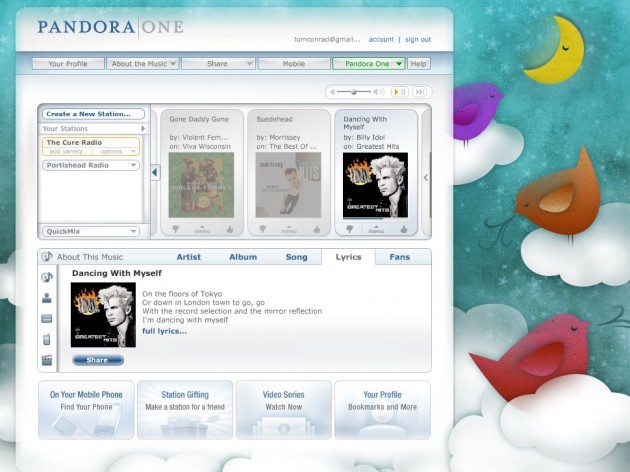
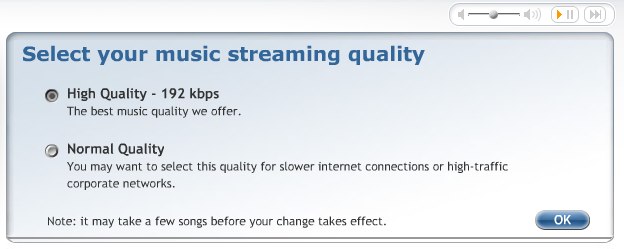
 We
We 
 The hardest thing about being an American journalist in China is discovering local entrepreneurs. Part of the reason is that there is just so much going on. There are so many intriguing expats and returning Chinese nationals in Beijing's start-up scene, you could spend months just meeting with them. But the bigger challenges are the language and cultural barriers. China has no shortage of fascinating local entrepreneurs, it can just take some time for Americans– with very, very poor Mandarin– to find them. Local entrepreneurs will definitely be a bigger focus in my next trip to China, as will seeing some more of the country. And, ahem, learning a bit more Mandarin before I arrive.
The hardest thing about being an American journalist in China is discovering local entrepreneurs. Part of the reason is that there is just so much going on. There are so many intriguing expats and returning Chinese nationals in Beijing's start-up scene, you could spend months just meeting with them. But the bigger challenges are the language and cultural barriers. China has no shortage of fascinating local entrepreneurs, it can just take some time for Americans– with very, very poor Mandarin– to find them. Local entrepreneurs will definitely be a bigger focus in my next trip to China, as will seeing some more of the country. And, ahem, learning a bit more Mandarin before I arrive.

 Say you have a group of individuals who all want to tweet from one account — right now, that’s a pain. You have to give everyone the password to the one account and have them log out of their own account and into this new one to use it. And even then, how do you know who is sending what tweet? You’d have to manually insert your own Twitter name at the end of your post or something along those lines. Now there’s a much easier way, and it comes thanks to a demo app.
Say you have a group of individuals who all want to tweet from one account — right now, that’s a pain. You have to give everyone the password to the one account and have them log out of their own account and into this new one to use it. And even then, how do you know who is sending what tweet? You’d have to manually insert your own Twitter name at the end of your post or something along those lines. Now there’s a much easier way, and it comes thanks to a demo app.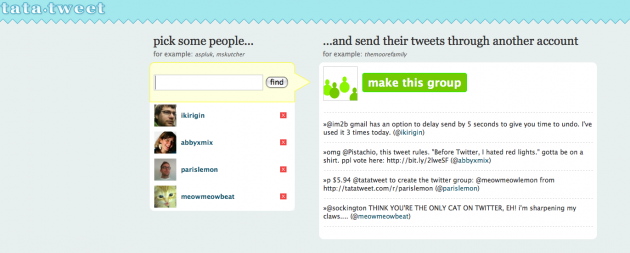


 Daimler got that
Daimler got that  Earlier today, we were at
Earlier today, we were at 
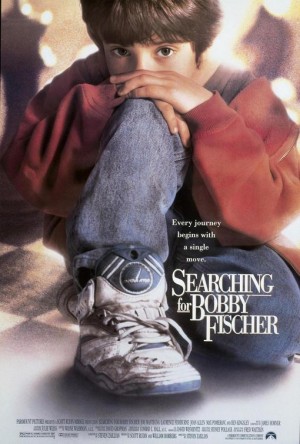




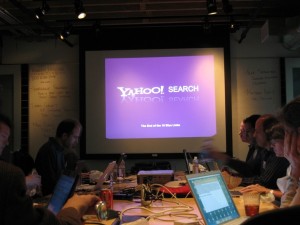 We’re at OutCast Communication’s offices for a Yahoo Search event that they’ve dubbed “The End of the 10 Blue Links.” It looks to be a state of the union for Yahoo’s search product, and a look ahead.
We’re at OutCast Communication’s offices for a Yahoo Search event that they’ve dubbed “The End of the 10 Blue Links.” It looks to be a state of the union for Yahoo’s search product, and a look ahead.
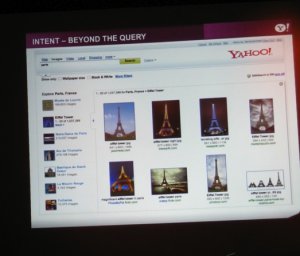

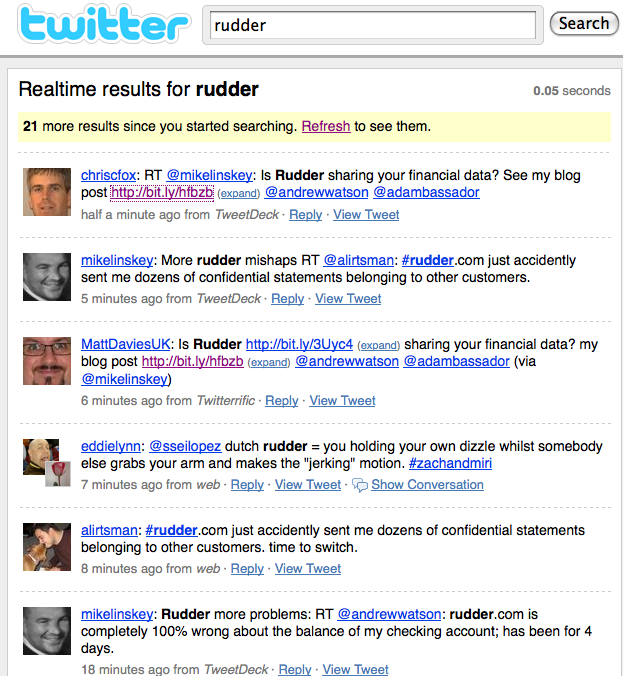
No comments:
Post a Comment